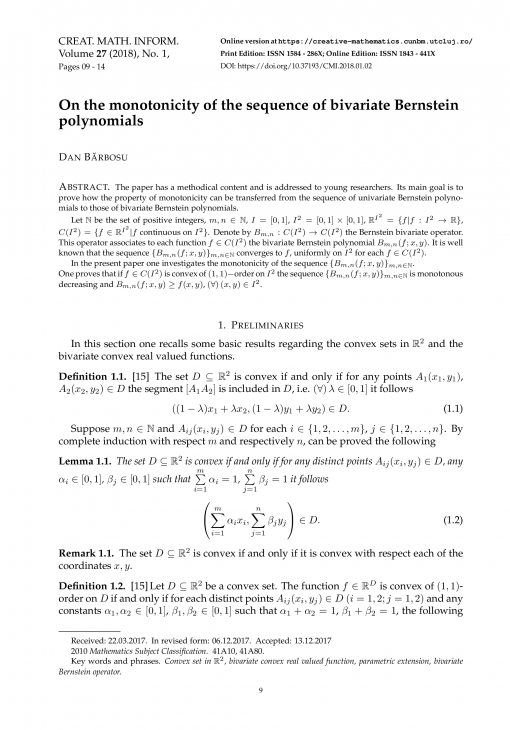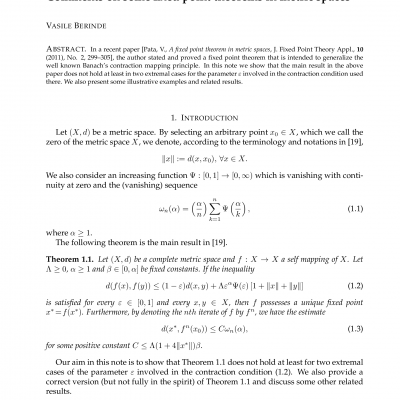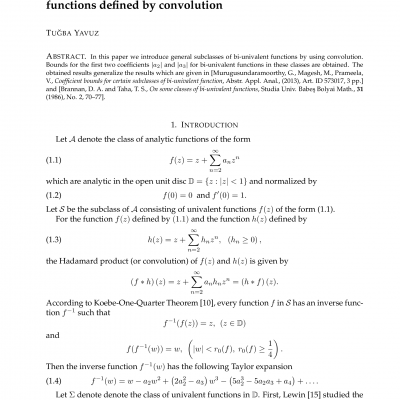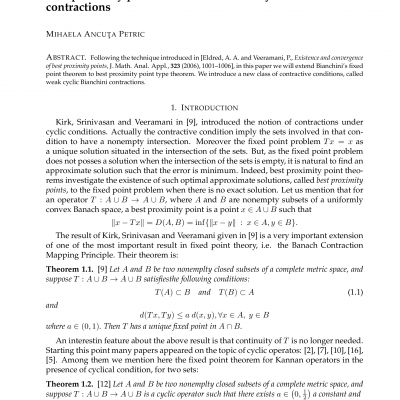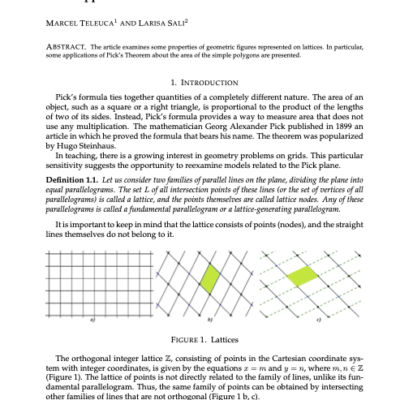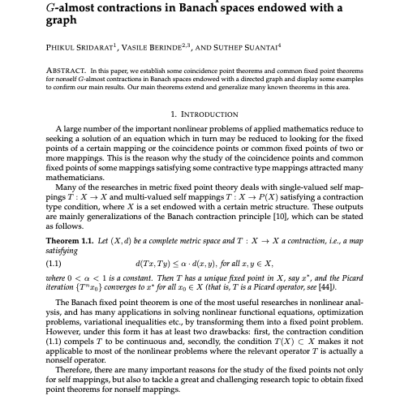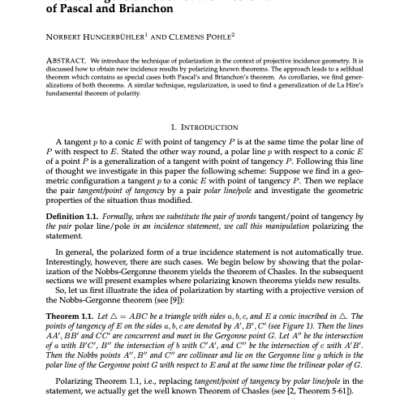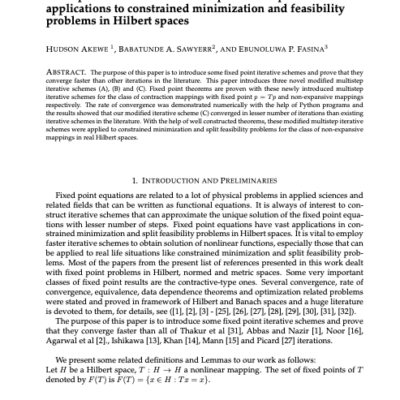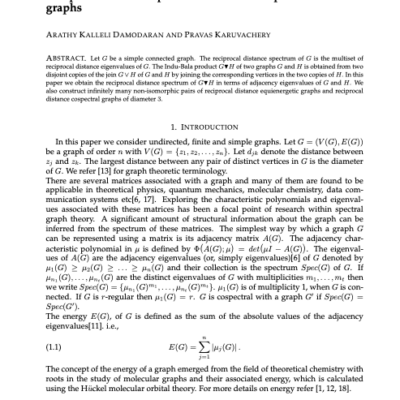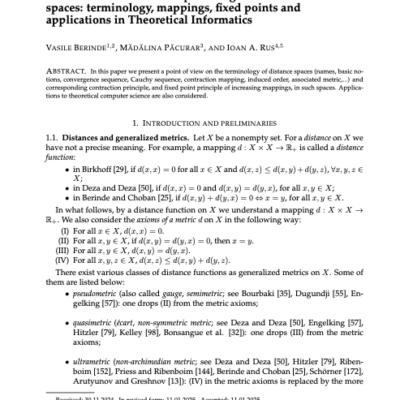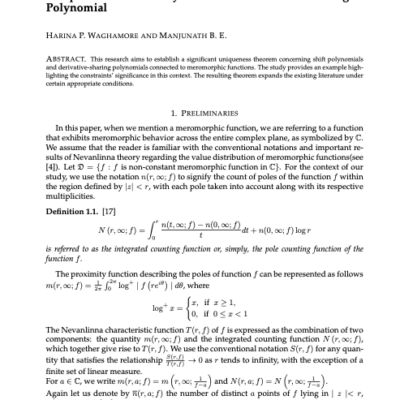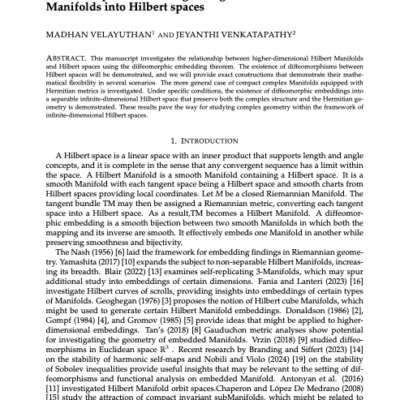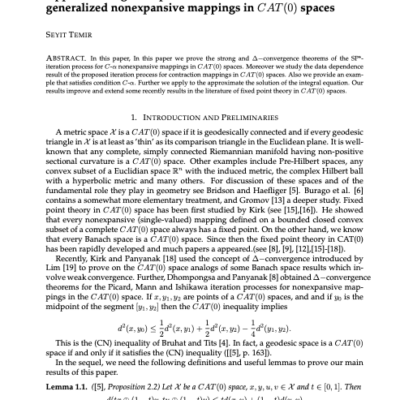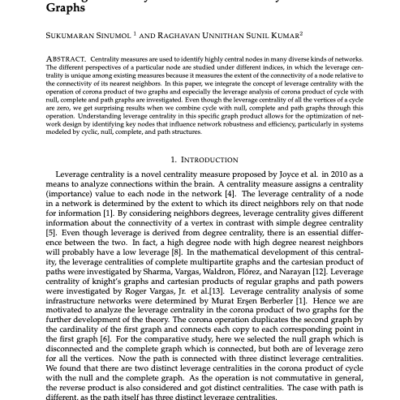The paper has a methodical content and is addressed to young researchers. Its main goal is to prove how the property of monotonicity can be transferred from the sequence of univariate Bernstein polynomials to those of bivariate Bernstein polynomials.
Let ![]() be the set of positive integers,
be the set of positive integers, ![]() ,
, ![]() ,
, ![]() ,
, ![]() ,
, ![]() continuous on
continuous on ![]() . Denote by
. Denote by ![]() the Bernstein bivariate operator. This operator associates to each function
the Bernstein bivariate operator. This operator associates to each function ![]() the bivariate Bernstein polynomial
the bivariate Bernstein polynomial ![]() . It is well known that the sequence
. It is well known that the sequence ![]() converges to
converges to ![]() , uniformly on
, uniformly on ![]() for each
for each ![]() .
.
In the present paper one investigates the monotonicity of the sequence ![]() . One proves that if
. One proves that if ![]() is convex of
is convex of ![]() order on
order on ![]() the sequence
the sequence ![]() is monotonous decreasing and
is monotonous decreasing and ![]() ,
, ![]() .
.

